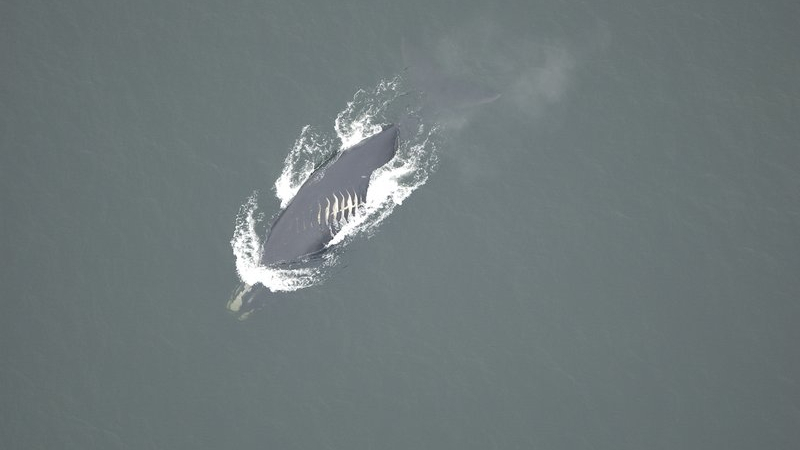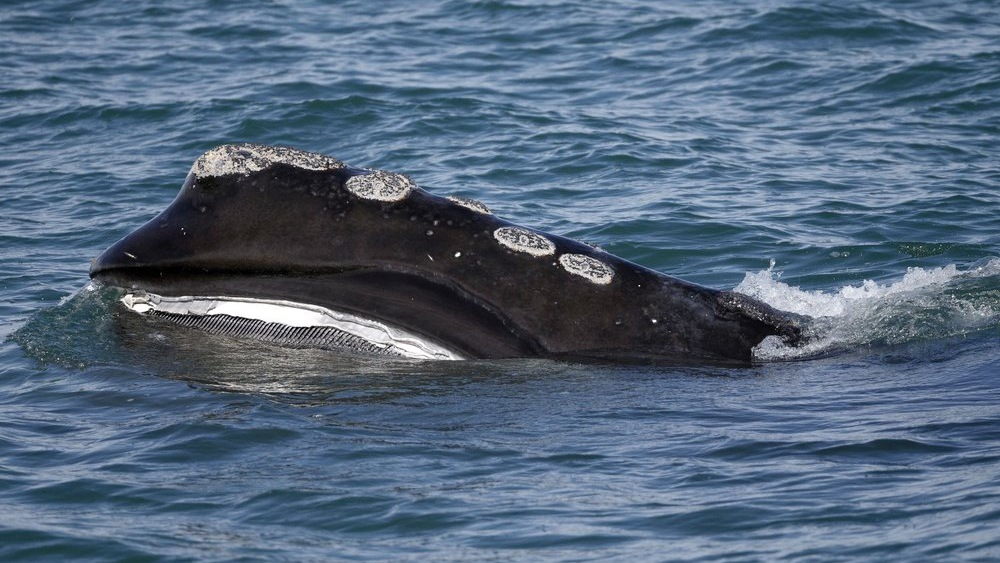Climate change is imperiling the world's largest animals by increasing the likelihood of fatal collisions between whales and big ships that ply the same waters.
Warming ocean temperatures are causing some species of whales in pursuit of food to stray more frequently into shipping lanes, scientists say.
In the U.S., this phenomenon already has increased ship strikes involving rare North Atlantic right whales on the East Coast and giant blue whales on the West Coast, researchers say. The number of strikes off California increased threefold in 2018 — to at least 10 — compared to previous years.

In this March 11, 2006 photo provided by the New England Aquarium, a whale swims off the coast of Georgia with fresh propeller cuts on its back. The whale is assumed to have died from its injuries, as it was never seen again./AP
In this March 11, 2006 photo provided by the New England Aquarium, a whale swims off the coast of Georgia with fresh propeller cuts on its back. The whale is assumed to have died from its injuries, as it was never seen again./AP
Vessels strikes, along with entanglement in fishing gear, are among the most frequent causes of accidental death in large whales. When whales are killed in a ship collision, they often sink and are not always washed ashore. Therefore, scientists and conservationists say fatal ship strikes are dramatically under-reported.
For the right whales, which number only about 400 and have lost more than 10 percent of their population in just a few years, the death toll is driving them closer to extinction, said Nick Record, senior research scientist at Bigelow Laboratory for Ocean Sciences in East Boothbay, Maine.
At least three right whales died from ship strikes in 2019 — a small number, but still dangerously high for so small a population. All three deaths were documented in the Gulf of Saint Lawrence off Canada, where scientists have said the whales are spending more time feeding as waters off New England warm.
Scientists say the changing ocean environment with global warming is causing right whales and some other species to stray outside protected zones designed to keep them safe from ships.

In this March 28, 2018 file photo, a North Atlantic right whale is feeding on the surface of the ocean. Ship strikes are one of the biggest causes of mortality for large whales, and scientists say the problem is getting worse because of the warming of the oceans. /AP
In this March 28, 2018 file photo, a North Atlantic right whale is feeding on the surface of the ocean. Ship strikes are one of the biggest causes of mortality for large whales, and scientists say the problem is getting worse because of the warming of the oceans. /AP
The increased ship strikes could necessitate "a broader area where ships don't travel," said Jessica Redfern, an ecologist with New England Aquarium's Anderson Cabot Center for Ocean Life and lead author of a study published in the journal Frontiers in Marine Science in February.
Moving shipping lanes, and the possibility of enforcing slower speeds for large ships, is a subject of much debate among conservation groups, international regulators and the shipping industry. Shippers say they have made attempts to work with conservationists, such as an ongoing effort to move a shipping lane in Sri Lankan waters to protect blue whales.
Changes to international shipping laws would have to go before the International Maritime Organization, which regulates shipping. The organization has taken numerous steps to protect whales in the past, including agreeing in 2014 to a recommendation for ships to reduce speed to 10 knots off the Pacific coast of Panama for four months every summer and fall.
(If you want to contribute and have specific expertise, please contact us at nature@cgtn.com.)
Source(s): AP